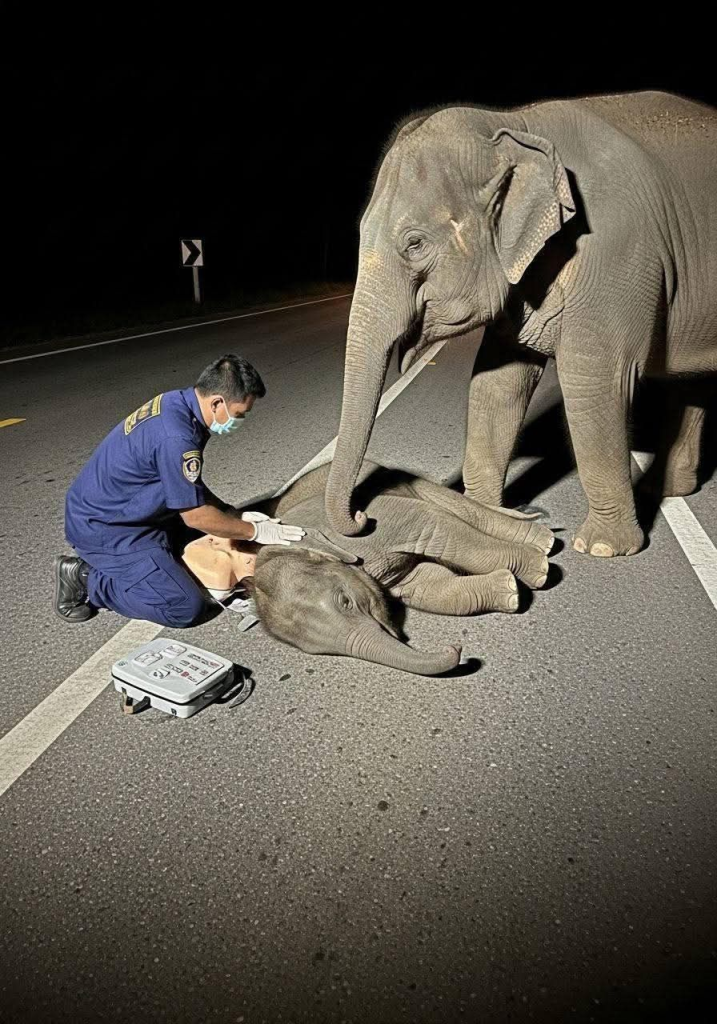It was a quiet night on a winding highway in eastern Thailand — the kind of road that disappears into darkness once the sun sinks behind the trees. The forest was alive with the sounds of crickets, the hum of the night, and somewhere in the distance, the low rumbles of an elephant herd moving together through the shadows.
Then, out of nowhere, came the sound that shattered the calm — the screech of tires, a crash, and then silence.
A motorcycle, unable to stop in time, had collided with a baby elephant crossing the road with its family. The herd scattered in panic, but the mother stayed. Her cries echoed through the night — deep, haunting bellows that spoke of fear and helplessness.
Moments later, an off-duty rescue worker named Mana Srivate arrived at the scene. He had worked in emergency rescue for more than 26 years, but he had never faced anything like this before.
“I’ve done countless CPRs,” Mana later said, “but never on an elephant.”

Still, something in him knew he had to try. The calf was lying on its side, unmoving. Its small body — still massive compared to a human — showed no signs of life.
Mana dropped to his knees beside it. Guided by instinct and compassion, he placed his hands where he imagined its heart might be and began to press rhythmically. He counted the beats silently, the night air thick with tension.
Minutes passed. Nothing.
Then suddenly — a flicker. A faint movement beneath his hands. The calf’s trunk twitched. Its chest rose weakly.
Mana’s heart leaped. “When it moved,” he said, “I cried.”
The baby elephant was alive.
Rescuers quickly cleared the area, keeping the mother at a safe distance until the calf could stand. For hours, they watched, waited, and hoped the pair would find each other again.
When dawn broke, they led the little elephant back toward the forest. Then, through the morning mist, came the sound of a familiar trumpet.
The mother was there.
As the baby approached, she reached out her trunk, touching her calf gently — a reunion so tender that it left even the most hardened rescuers speechless. The two stood together for several moments, their trunks entwined, their breathing steady, their bond unbroken.
That night on a Thai highway, a man didn’t just save an animal. He reminded the world what compassion looks like — raw, instinctive, and boundless.
Because heroes don’t always wear uniforms or capes. Sometimes, they kneel beside a fallen soul — human or otherwise — and give it a heartbeat again.